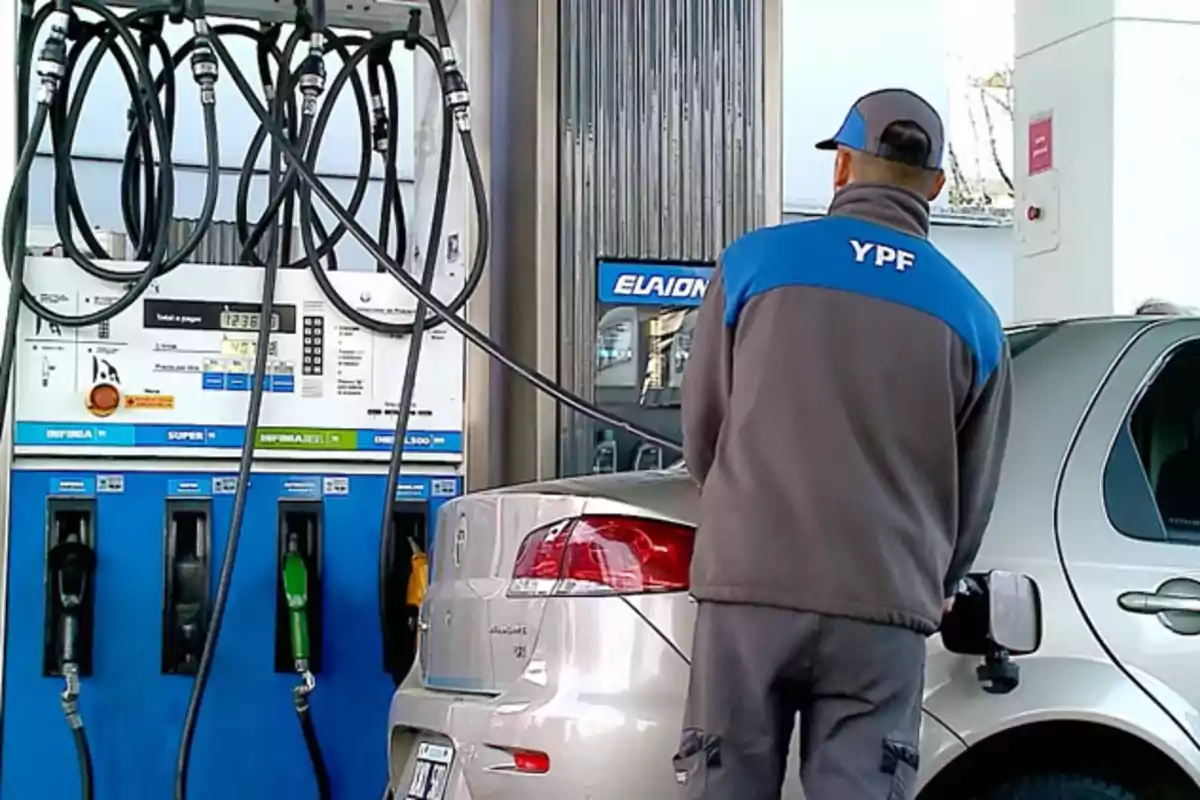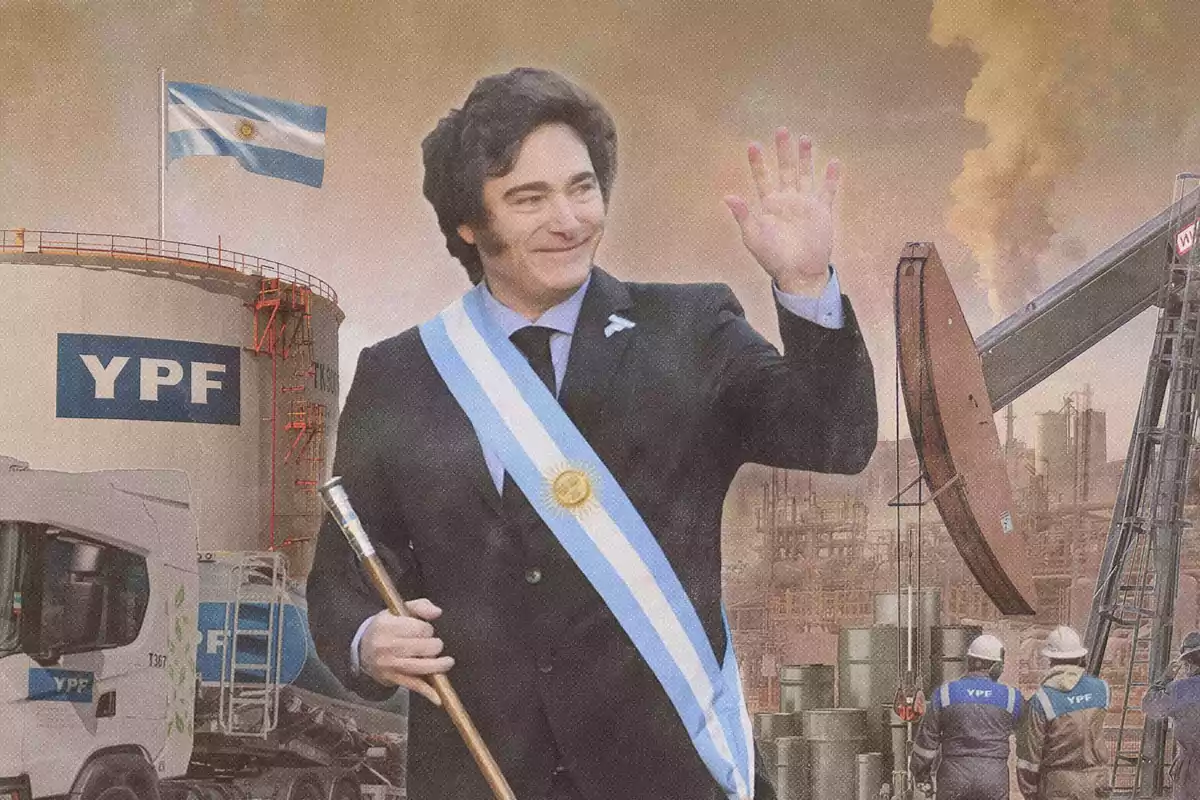
YPF could lower the price of gasoline thanks to the drop in oil prices
The liter of gasoline in Argentina is around US$1.1, thanks to a 4% decrease for gasoline and a 5% decrease for diesel
In a clear demonstration of alignment with the new economic direction of the country, the state oil company YPF is considering reducing gasoline and diesel prices if the international oil price continues to fall, which in recent days dropped from US$75 to US$64 per barrel of Brent crude. This decrease occurs in a context of strong international trade tension, resulting from tariffs imposed by United States President Donald Trump and the production increase announced by OPEC.
The announcement was made by YPF's president, Horacio Marín, at a high-profile event: the presentation of the company's five-year strategic plan at the Wall Street Stock Exchange. There, Marín stated that "if the crude price keeps dropping, we'll crunch the numbers and, if appropriate, we'll lower the prices", in line with the new paradigm of efficiency, competitiveness, and transparency promoted by the Milei administration.

Already in October of last year, YPF had sent a signal to the market by reducing prices by 4% for gasoline and 5% for diesel. However, due to tax incidence, the effective reduction at the pumps was 1% and 2% respectively, showing how the inherited tax pressure still conditions the sector's competitiveness.
Today, the new policy of lifting the currency exchange clamp implemented by the Government positions itself as another key factor: with a floating exchange rate, the market will freely determine the quotation, which, coupled with the oil drop, could translate into a concrete decrease in consumer prices. However, there is a variable that continues to distort the picture: taxes. Currently, more than 40% of the final fuel price corresponds to the tax burden, a remnant of the previous interventionist model that still affects consumers' pockets.

In that sense, the last increase applied by YPF —of just 1.7% in April, lower than 1.9% in March— was mainly due to the update of the Liquid Fuels and Carbon Dioxide Tax, and not to an increase in operating costs or inflationary adjustments.
Marín was also clear about the impact of the price index: "Prices aren't tied to inflation", which confirms the Milei government's intention to detach energy policy from the old indexation logics that caused so much damage to the economy.
Today, the price of a liter of gasoline in Argentina is around US$1.1, ranking as the third highest in South America, only behind Uruguay (US$1.8) and Chile (US$1.2), according to international statistics. However, with an energy policy aligned with the market and the government's reformist drive, the competitiveness of Argentine fuels could improve significantly.
More posts: